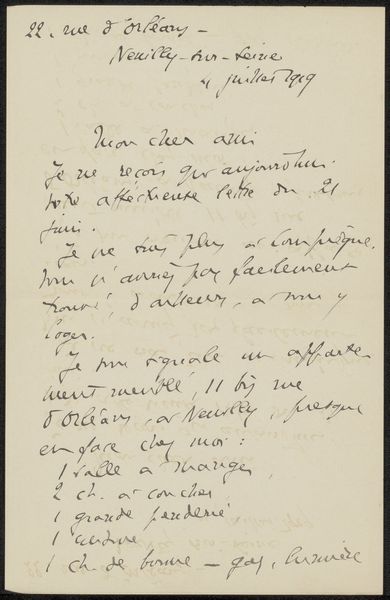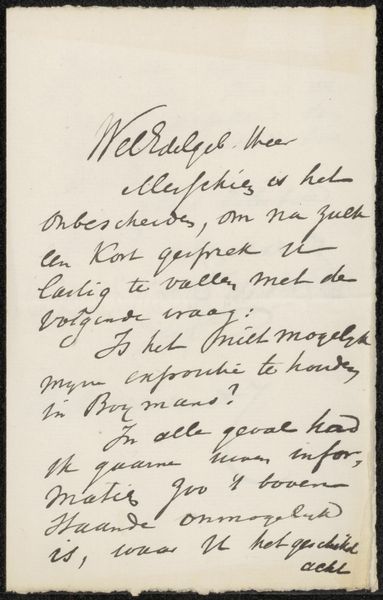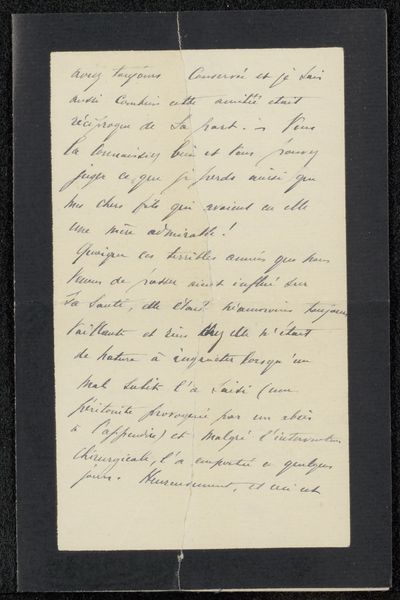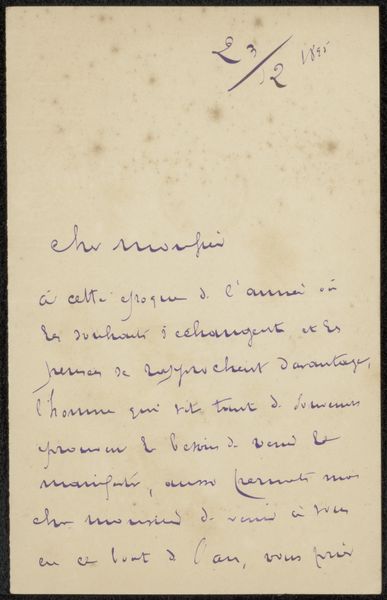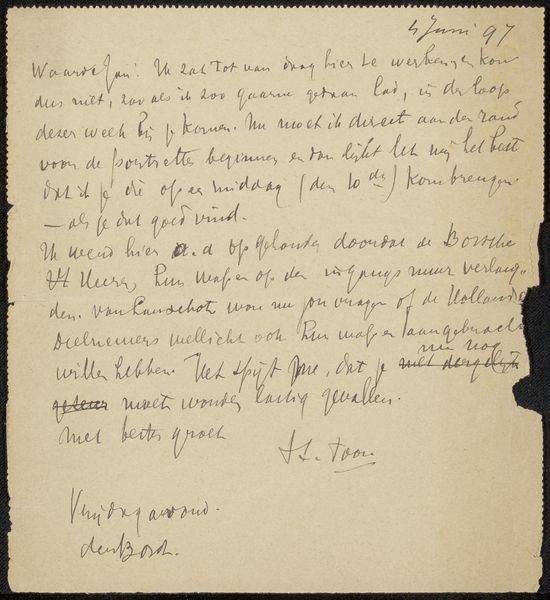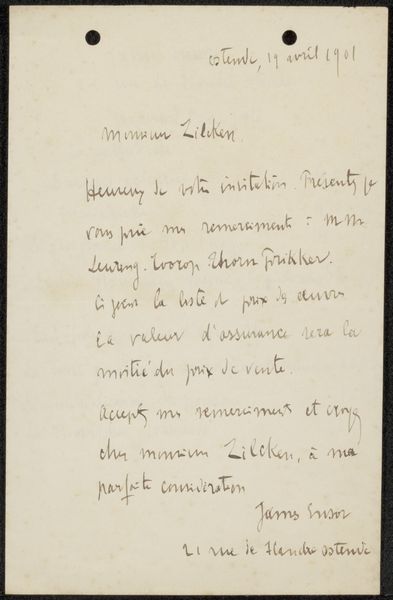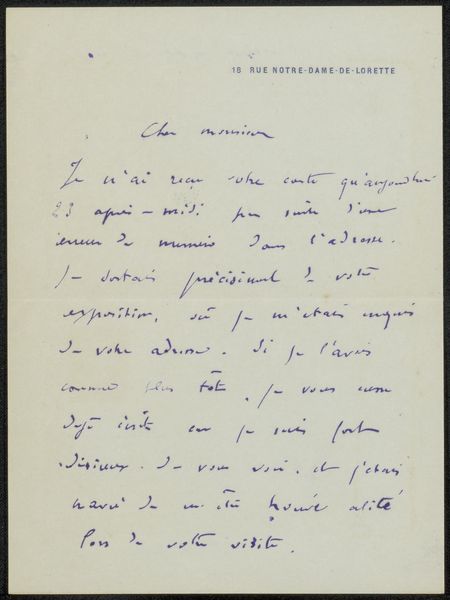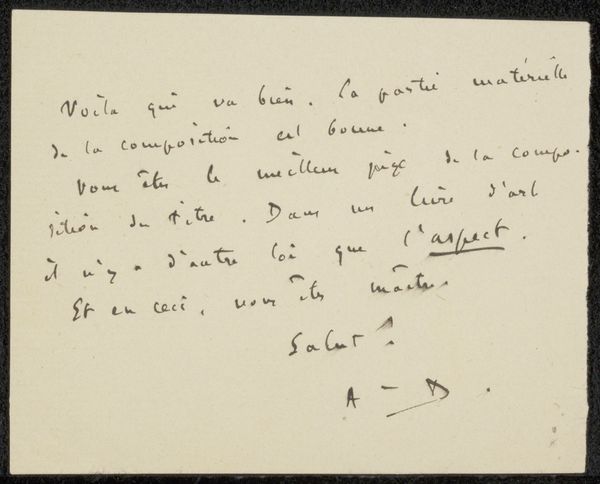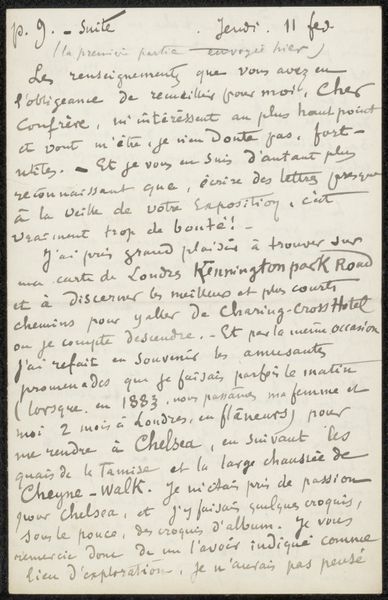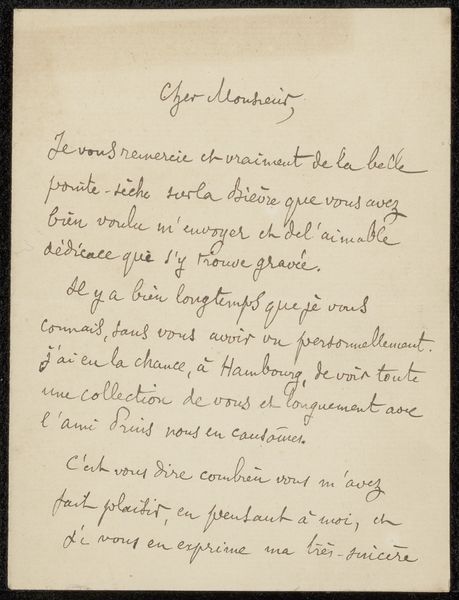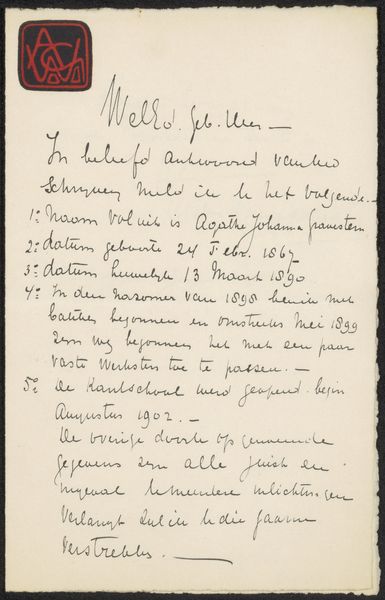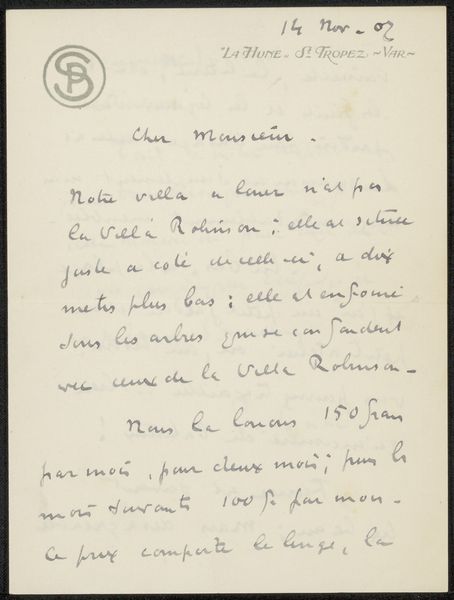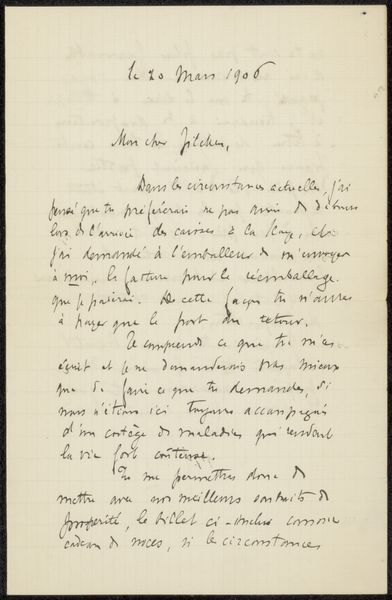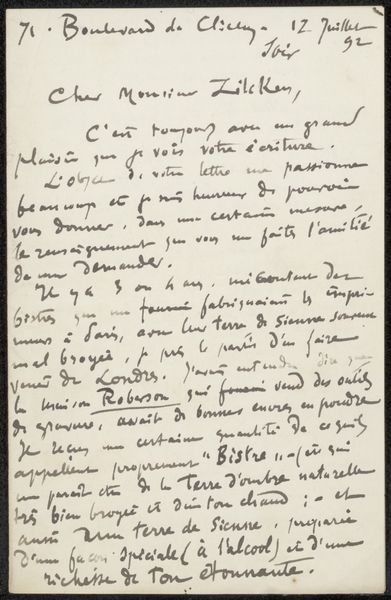
drawing, paper, ink
#
drawing
#
aged paper
#
toned paper
#
hand-lettering
#
ink paper printed
#
paper
#
personal sketchbook
#
ink
#
ink colored
#
sketchbook drawing
#
watercolour illustration
#
sketchbook art
#
watercolor
#
calligraphy
Copyright: Rijks Museum: Open Domain
Curator: Well, here's an interesting one: a postcard or letter titled "Briefkaart aan Philip Zilcken" by E. Grès, likely from 1928 or 1929. It's ink on paper, with some watercolour too, judging from the light washes. It has such a gentle, almost faded quality...like a whisper from another time. Editor: It speaks of longing, or perhaps, wistful recollection. I’m struck by how class and privilege can be both visible and obscured within its material form. Here we have correspondence –likely between artists or intellectuals, given the refined hand and French script. It assumes a certain level of literacy and leisure rarely afforded to working classes. Curator: You’re right. I imagine the correspondence filled with talk of art, ideas, travels…perhaps even gossip! It’s intimate in a way that public art often isn’t. The aged paper only enhances that feeling, that it was meant for only one set of eyes. Editor: Exactly. The letter embodies a power dynamic through its existence. The materiality screams privilege; the access to education, refined language… these are coded forms of social distinction, intentionally or unintentionally perpetuated through acts such as letter writing. It’s more than just the simple act of sending mail. It's imbued with assumptions. Curator: But couldn’t you argue there’s also a generosity in sharing one’s thoughts, regardless of class? The artistry is clear, with the deliberate hand-lettering. It transcends mere information. Editor: I agree there is skill involved, a kind of craft. Yet the system that valorizes “craft” often overlooks or erases similar skillsets found in marginalized communities, coding them as "folk art" or mere “labor.” This artwork then becomes emblematic of whose stories we elevate, and how. Curator: I hadn’t quite considered it that way before. It really does make you rethink what we prioritize in our narratives. Editor: And maybe think about what it means to write a postcard now, when digital communication flattens so many interactions into the immediate, versus the layered temporal dimensions of slow, material exchange. Curator: Indeed. There’s something so poignant about those layers, visible right on the aged paper itself, now that you point it out. Thank you for sharing a completely different perspective!
Comments
No comments
Be the first to comment and join the conversation on the ultimate creative platform.
